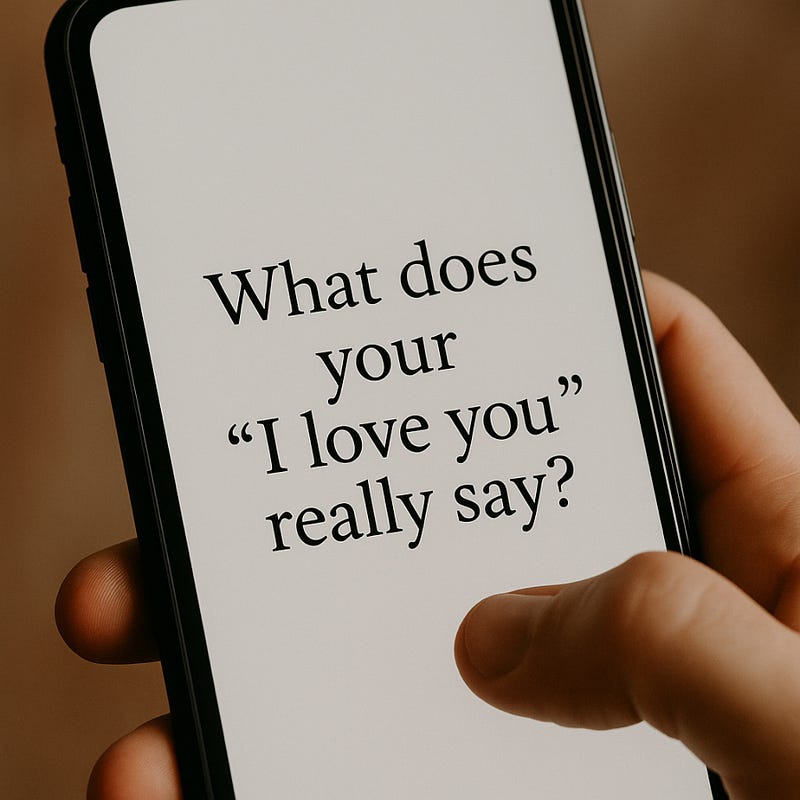What Does Your “I Love You” Really Say?
Are you communicating what you think you are?

I asked myself something raw today, and I want to ask you too: when you say “I love you,” do you mean what you think you mean?
I was asking some serious questions of myself today. I feel it is only fair to let it out here for you, my friends and chosen family. Let’s get straight into it — no fluff, no filler, just down-and-dirty, ugly questions as is my style.
When we say I love you, are we actually communicating what we think we are?
There are many types of I love you’s. There are the fake ones, the quick ones said absentmindedly while running out the door, the phone-it-in type. Then there are the lies — the ones we heard when we were abused by our spouse either physically or mentally, the ones that sound like: “I love you, but you make me so mad.”
Then there are the I love you’s that are never spoken but lived out in a language of love — doing the unpleasant things for the other because that’s our version of care. There are the I’m sorry kind of I love you’s, where the words are less a statement and more a question.
I have heard a thousand I love you’s spoken, witnessed, and felt in flesh.
What does your I love you say?
What would it say if you could not speak it, write it, or use touch to demonstrate it?
If your words of love were translated into action, would they say anything at all?
I ask myself these types of questions all the time. I think we misuse the term I love you far too much. As a result, we have turned it into both too much and too little at the same time. Some people use it like it has no meaning whatsoever.
Acquaintance is called love. Friendship is called love. But if all these things become love in your diction, then what happens when you want something that hits harder? What happens when you want a phrase set apart — what used to be I love you? What do you say then to your spouse?
I will close with this.
Measure your love with action coupled with words. Let your action be love in movement, so that when you join it with verbal confession it is already known. “Let us not love in word or talk but in deed and in truth.” (1 John 3:18)
Never use love as an excuse or manipulation. Leave love sacred — in yourself and in God.
As always this is Dust,
For you,
To you,
From Him,
In me.